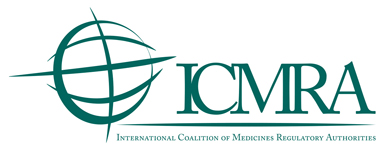 | The role of real-world data (RWD) and real-world evidence (RWE) in supporting the development of medicines across their different stages of development and use is evolving rapidly. However, challenges exist, due for example to heterogeneous data sources, different levels of data quality, and various governance models for data sharing and access. Close collaboration between regulators across the world can help address these challenges. ICMRA can play an important role by catalysing increased cooperation on the use of RWE for regulatory decision-making. The timely work undertaken by regulators and researchers to address the unprecedented challenge of the COVID-19 pandemic, as well as lessons learnt throughout the last two years, have led regulators to establish or reinforce collaborations allowing efficient sharing of data and experience. These collaborations can be further leveraged to medicines regulation beyond the pandemic. In June 2022, EMA, FDA, and HC co-chaired an ICMRA workshop (programme in Annex) to share experience on accomplishments and challenges of RWE in medicines regulation, and to identify opportunities for future regulatory collaboration. |
· Opportunities for collaborationThe June 2022 ICMRA workshop on RWE identified four areas of opportunities for regulatory collaboration which could help address common challenges and further enable the integration of RWE into regulatory decision-making. · Harmonisation of RWD and RWE terminologies:- Generate common operational definitions of RWD and RWE, with clear scope and level of granularity (e.g., pertaining to RCTs and observational studies);
- Leverage existing ICH activities, such as M14 on “General principles on planning and designing pharmacoepidemiological studies that utilize real-world data for safety assessment of a medicine”.
· Convergence on RWD and RWE guidance and best practice, including:- Common principles for RWD quality;
- Metadata to enable characterisation and discoverability of RWD;
- Suitable scenarios where RWE may contribute to regulatory decision-making, building on existing use-cases;
- Templates for study protocols/reports that can be used in multiple regulatory
· Readiness- Through the strengthening of international regulatory collaboration on RWE, enable the rapid creation of expert groups on specific topics of interest, including in case of emerging health threats;
- Foster collaboration on governance and processes to enable the efficient conduct of studies based on RWD from different countries to address important public health
· Transparency- Define common principles and practices for the systematic registration of pre-specified study protocols (including description of feasibility assessments) and study results in publicly available registries;
- Promote publication of study results in open-source, peer-reviewed
These potential areas for regulatory collaboration on RWD and RWE could be taken forward through a variety of existing fora including ICH, international standardisation bodies, and clusters of interested regulators. ICMRA remains committed to steering this work in the interests of patient health and innovation. LINK: https://icmra.info/drupal/sites/default/files/2022-07/icmra_statement_on_rwe.pdf |





























